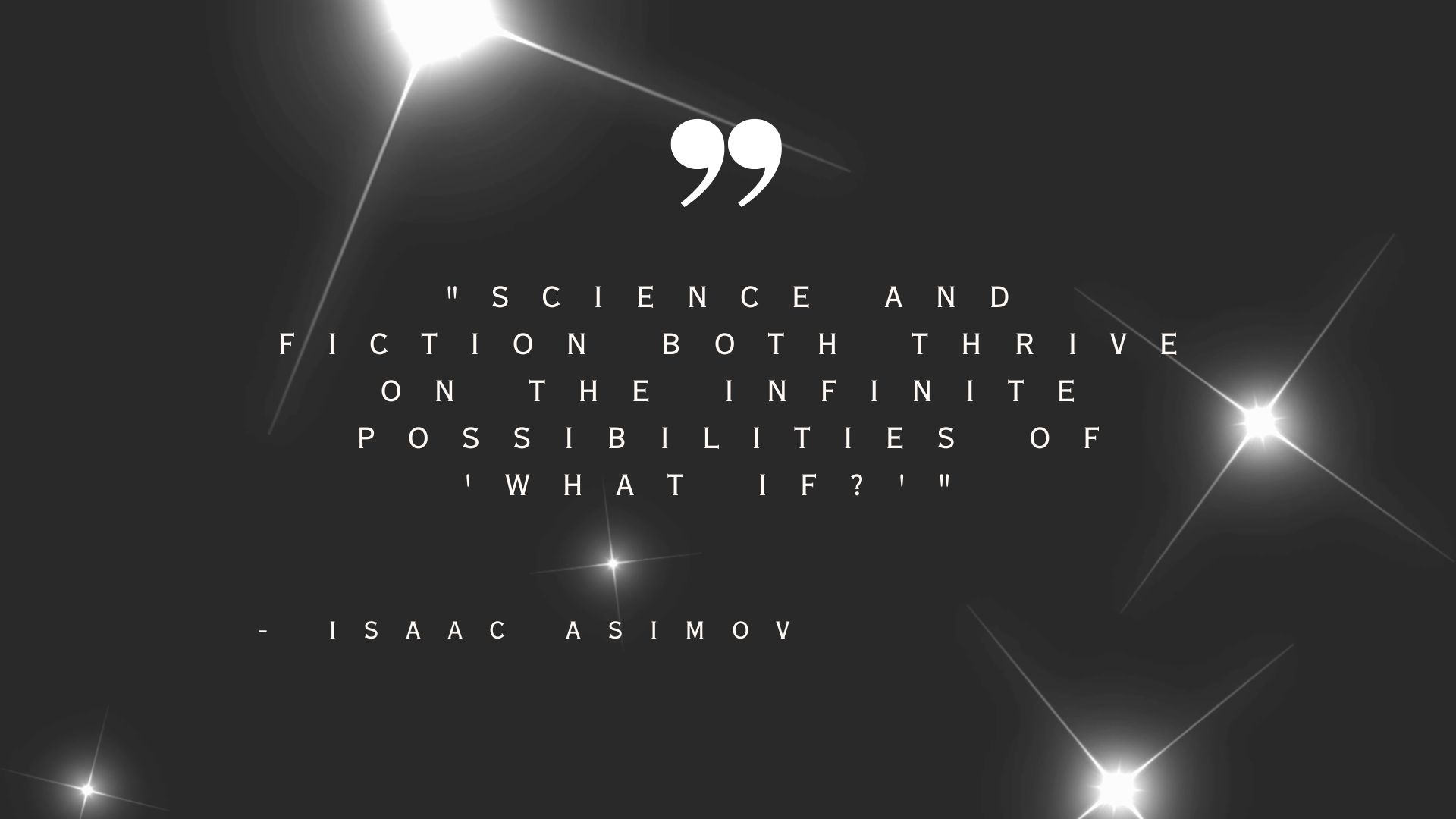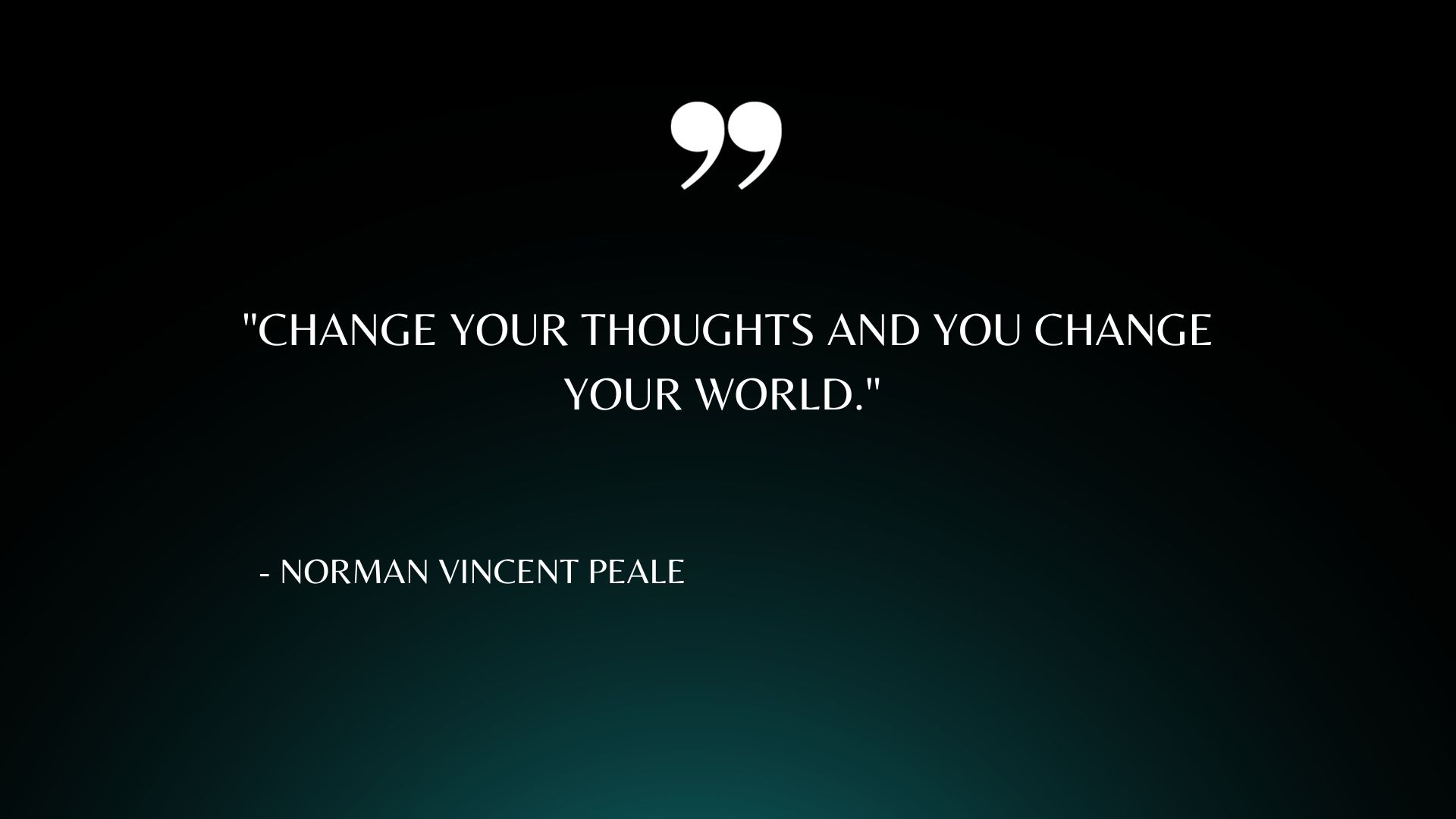“Science and fiction both thrive on the infinite possibilities of ‘what if?'”
– Isaac Asimov
Isaac Asimov, a prolific science fiction writer and biochemist, succinctly captured the essence of the relationship between science and fiction with the quote, “Science and fiction both thrive on the infinite possibilities of ‘what if?'” This quote highlights the common ground shared by these seemingly distinct realms—science and fiction—where the imaginative exploration of potential scenarios, discoveries, and technologies fuels their progress. In this explanation, we’ll delve into the subheadings that shed light on the profound connection between these two domains.
- Science and the ‘What If?’ Question: Science, at its core, is an intellectual pursuit driven by curiosity and a desire to understand the natural world. The foundation of scientific inquiry lies in the question, “What if?” Scientists pose hypotheses and conduct experiments to explore potential outcomes and gain insight into various phenomena. The ‘what if?’ question acts as a guiding compass in the scientific process, enabling researchers to push the boundaries of knowledge and make groundbreaking discoveries.
- Fiction and the ‘What If?’ Scenario: Fiction, particularly science fiction, offers a unique platform for authors to engage their creativity and speculate on alternative realities. By asking the ‘what if?’ question, writers can craft intricate plots and build entire worlds that challenge existing norms and beliefs. Whether it’s imagining advanced civilizations, futuristic technologies, or alien encounters, fiction provides an outlet for the human imagination to soar beyond the confines of reality.
- The Synergy Between Science and Fiction: The synergy between science and fiction is evident in the way both fields feed off each other’s ideas and advancements. While science inspires fiction with its latest discoveries and theoretical concepts, fiction, in turn, fuels scientific inquiry by presenting researchers with innovative ideas and stimulating possibilities. The shared ‘what if?’ mindset drives progress in both domains, as they mutually encourage a sense of wonder and curiosity about the unknown.
- Fostering Innovation and Technological Progress: By embracing the infinite possibilities of ‘what if?’, science and fiction have played crucial roles in fostering innovation and technological progress. Many of the technological marvels we enjoy today were once merely speculative ideas in science fiction novels. From space exploration to artificial intelligence, these fictional visions have become tangible realities through the dedication and ingenuity of scientists and engineers who dared to ask, “What if we can make this a reality?”
- Expanding Human Horizons: The exploration of ‘what if?’ scenarios through science and fiction expands human horizons. It encourages us to contemplate not only the potential marvels and benefits of progress but also the ethical and moral implications that come with such advancements. By envisioning diverse outcomes, both positive and negative, we can make informed decisions as a society and shape a future that aligns with our values and aspirations.
Conclusion:
Isaac Asimov’s insightful quote serves as a reminder of the profound connection between science and fiction. Both domains are united in their shared pursuit of the boundless possibilities that arise from asking the ‘what if?’ question. Whether through the rigorous methodologies of science or the imaginative tales of fiction, humanity continues to explore, learn, and evolve, ever-driven by the endless potential of the unknown.




